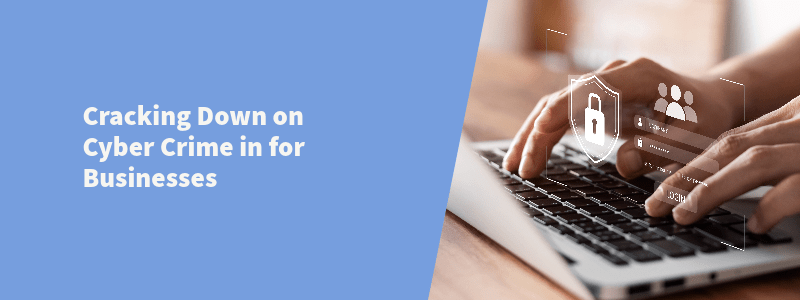Gone are the days when businesspeople only had to protect their shop fronts from criminals, which could easily be done with a metal front and some cameras. Many businesses have pivoted to digital as well as high street or, as many may have done, moved solely online. Not only do they have their physical assets to protect, but also their digital footprint. There’s a whole load of impact that cyber crime can leave on an organisation, and that’s why the level of awareness you have can materially impact exactly how successful and sustainable your business can be. As the small business experts, Direct365 have some detailed information on exactly how your small business can crack down on crime on the digital avenues you use. So, let’s get you safer and educate you about digital crime.
Why Digital Crime is a Growth Market
Digital crime is becoming more of a growth market because the internet is becoming the new high street, and because many business owners aren’t sure how to protect themselves. Scammers and thieves are disguising themselves with all sorts of methods to get to your data.
Just think about it, before computers and the internet, the only technology used in most businesses will have been the till. To get to these, thieves would have to go into a shop, and they would risk being caught or being recognised. Now with so much valuable data online, it only takes a business owner to share too much information by accident before the can become vulnerable to cyber-attacks. This is why digital crime is such a growing problem. Because it only takes a bit of disguise and knowhow to break into someone’s business.
How Digital Crime Could Impact Your Business
There are a number of ways that cyber crime can impact your business. For a starter for ten, it could cost you money directly from loss of sales. If your business needs to shut down from the cyberattack, you won’t be able to make money.
On a grander scale, criminals could look to blackmail you with the information they have. Often, these people are looking to access your data and demand payment before they give it back or delete it. Which itself it littered with risk.
Financially it can be huge for your company, but there’s also a chance that this damages your reputation if employee and customer records are taken and exploited. Customer telephone numbers, addresses or bank details are private data and in the wrong hands would cause further harm than just to your business. This would be against GDPR and would impact you legally.
What is the Cost of Digital Crime?
The cost of cyber crime in the UK is astronomical. It costs businesses upwards of £27 billion a year in collective costs across the country, which works out at an average of £4,800 per business per year. And, according to IT services company Twenty Four, only 15% of businesses have a security incident plan in place. Having a lack of plan suggests that most businesses in the country are severely underequipped to deal with a cyber security threat if one occurs.
How can your Small Business Combat Digital Crime.
There are a few ways your business can become more prepared to tackle cybercrime. Here are a few avenues to go down:
- Ensure you have a cyber attack plan in place.
- Protect your technology with added security software.
- Educate staff on strong passwords and spam emails/texts.
- Send fake spam emails to staff to identify problem areas and people that need greater advice on security.
- Have back up data for all important documents.
Digital crime is on the rise. Protecting your small business should be a top priority. Ensure you have a plan of action to stop you from falling foul to criminals.
Back

